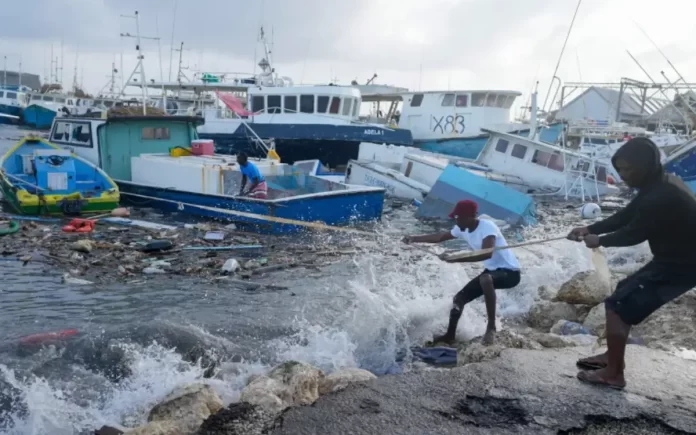Hurricane Beryl has wrought havoc across several Caribbean nations, claiming at least one life and leaving thousands without power or adequate shelter in St Vincent and the Grenadines, Grenada, and St Lucia.
The storm intensified to a Category 5 hurricane as it moved eastward towards Jamaica and is expected to impact Mexico later this week. Social media images depict widespread destruction, with homes stripped of roofs and residents sifting through debris to salvage belongings.
Grenada’s Prime Minister, Dickon Mitchell, described Carriacou Island as “flattened” within half an hour of Beryl making landfall. Ralph Gonsalves, Premier of St Vincent and the Grenadines, confirmed one fatality and expressed concerns over potential additional casualties.
Airports and businesses preemptively closed as Beryl approached, prompting urgent calls for residents to seek refuge. Power outages in Grenada have disrupted communication and emergency updates, compounding the challenges faced by affected communities.
The National Hurricane Center (NHC) reported sustained winds near 150 mph (241 km/h), warning of “potentially catastrophic wind damage” in the Windward Islands, particularly St Vincent and the Grenadines and Grenada. A hurricane watch is in effect for Jamaica, anticipating hazardous conditions by Wednesday.
As the region braces for further impact, leaders emphasize the seriousness of the situation, with Mr. Gonsalves himself seeking shelter in his basement due to the storm’s ferocity.
The unfolding scenario underscores the early and severe onset of this year’s Atlantic hurricane season, with climate scientists attributing Beryl’s rapid intensification to warming sea temperatures associated with climate change.



